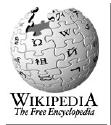2006: BASIC: Open Source Intelligence Familiarization Documents (Original)
Open Source Intelligence (OSINT) leads to Information Operations (IO), which leads to Multinational, Multiagency, Multidisciplinary, Multidomain Information-Sharing and Sense-Making (M4IS2), which leads to Cyber-Command (CYCO6), a mis-nomer, but representing all information in all languages all the time, with every person and every artifact having their own IP address.
All of this–OSINT, IO, M4IS2, CYCO6–is Human Intelligence (HUMINT), not Technical Intelligence (TECHINT). In the immortal words of Paul Strassman, then Director of Defense Information, “Information Technology makes bad management worse.” We're there. Peter Drucker said it in 1998 in Forbes ASAP, Robert Steele said it in 2000 to NSA in Las Vegas, we need to stop focusing on the T and start focusing on the I. The “I” is about human brains, human minds, human relationships, human understanding.
Practical Do It Yourself (DIY) OSINT
2011 OSINT Discovery Toolkit–Reuser’s Repertorium
2009 OSINT Links Directory by Ben Benavides
2004 Special Operations Forces OSINT Handbook (Strawman)
2000-2002 NATO OSINT Handbooks
Strategic Enabling for a Smart Nation Creating a Prosperous World at Peace
Open Source Agency: Executive Access Point
2012 THE OPEN SOURCE EVERYTHING MANIFESTO: Transparency, Truth & Trust
2012 INTELLIGENCE FOR EARTH: Clarity, Diversity, Integrity & Sustainability
2008 COLLECTIVE INTELLIGENCE: Creating a Prosperous World at Peace
See Also:




